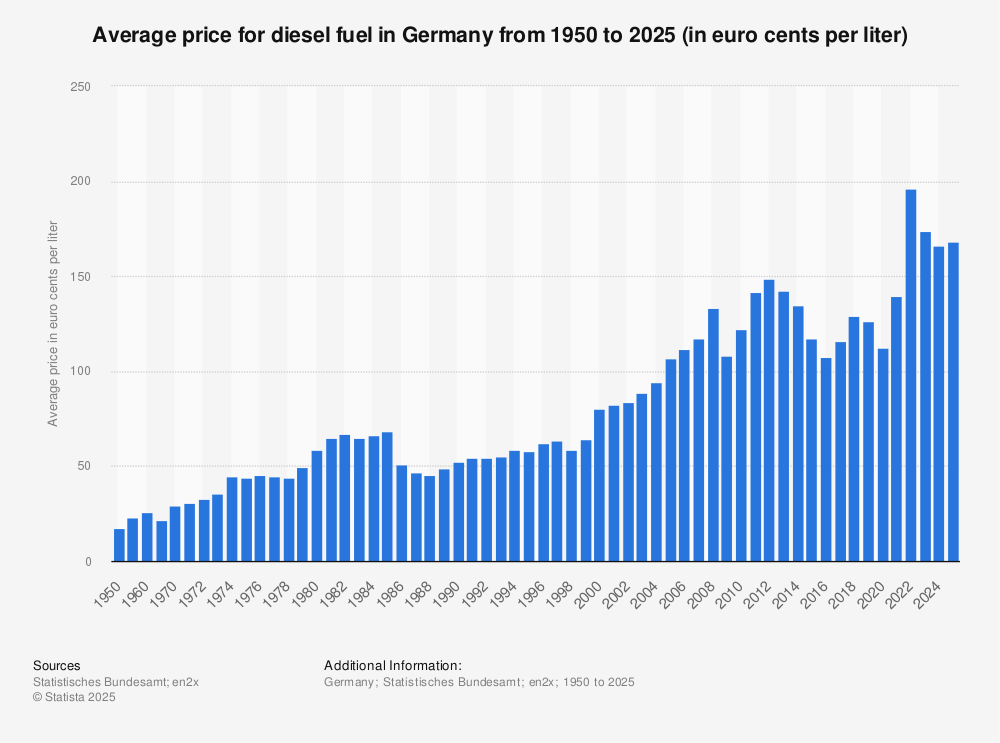
Introduction
Diesel fuel prices are a critical component of the transportation and logistics sectors, influencing costs across various industries. As of October 2023, updates on diesel prices highlight significant volatility due to a combination of geopolitical events, supply chain challenges, and fluctuations in crude oil prices. Understanding the current trends in diesel fuel prices is essential not only for businesses relying on transportation but also for consumers facing rising goods prices.
The Current State of Diesel Fuel Prices
Recent data shows that diesel fuel prices have experienced a marked increase over the past year. According to the Canadian Automobile Association (CAA), the average diesel price in Canada reached approximately $2.05 per litre in October 2023, reflecting a 30% increase compared to the previous year. The increase can be attributed to various factors, including OPEC production cuts, geopolitical tensions in oil-producing regions, and lingering effects from the COVID-19 pandemic that has disrupted supply chains.
Factors Influencing Diesel Fuel Prices
Several key factors are currently driving changes in diesel fuel prices:
- Global Oil Prices: The price of crude oil, which significantly affects diesel prices, has seen a surge due to reduced production by OPEC+, maintaining higher prices across the board.
- Demand for Shipping: As economies recover from the pandemic, the demand for freight and logistics services has surged, leading to increased consumption of diesel fuel.
- Environmental Regulations: Stricter emission standards and a push towards cleaner fuels are also contributing to rising operational costs for distributors, thereby affecting fuel prices.
Impact on Consumers and Businesses
The rise in diesel fuel prices does not only affect transportation companies but resonates throughout the consumer market. Higher fuel costs can lead to increased prices for goods transported by trucks, which in turn affects grocery prices and other essential goods. For farmers, fluctuating diesel prices present challenges in determining operational costs and product pricing, posing risks to agricultural profitability.
Potential Outlook
Experts predict that diesel fuel prices may stabilize in early 2024 if geopolitical tensions ease and OPEC+ decides to increase supply. However, given the unpredictable nature of international oil markets, consumers and businesses alike must prepare for potential continued fluctuations. Monitoring trends in diesel prices remains essential as they can have broader implications for inflation and the overall economy.
Conclusion
Diesel fuel prices are on an upward trajectory, driven by a confluence of factors including geopolitical events and post-pandemic recovery. As prices remain high, understanding their implications is crucial for all Canadians. Awareness and adaptability will be key as both consumers and businesses navigate the economic landscape shaped by these rising costs.






